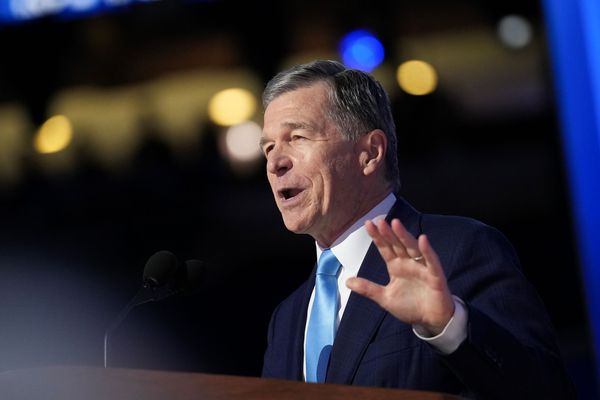
Caixin Global’s Top Stories of the Month newsletter brings you the most popular news coverage over the past month. You can opt-in now and get handpicked news coverage delivered to your inbox each month for free.
This month, the Glasgow Pact was agreed on by world leaders at COP26, after last-minute negotiations on the use of coal. Although experts said only “incremental progress” was made, a U.S.-China joint declaration pledging to work together to on climate action over the next decade boosted confidence that the world can adapt and mitigate climate risks with solid action.
China’s economic momentum is still relatively weak. Although regulatory reform and constraints on the real estate market are likely to remain in place, dipping property sales and prices prompted regulators and some local governments to send out positive signals in an attempt to reassure developers, investors and homebuyers.
In November, the Chinese and U.S. heads of state finally held their first video summit. Following high tensions in recent years, Xi and Biden vowed to move toward an era of healthy competition without confrontation. The summit sets a new course for bilateral relations and can be seen as a good start for avoiding conflict.
Caixin Summit 2021, with the theme of “Building a Community of Shared Future”, discussed challenges and opportunities for the world in the areas of the economy, environment and the Covid-19 pandemic. Notable speakers included New Zealand Prime minister Jacinda Ardern and Singapore’s Deputy Prime Minister Heng Swee Keat. Current and retired regulators were also invited to share their insights on the prevailing trends affecting the economy, finance, tech and trade in China.

In Depth: China’s Sponge City Failings Show the ‘Arduous’ Task of Adapting to Climate Change
From devastating flooding in central China to torrential downpours in Europe, record-breaking natural disasters since summer have wreaked havoc across the world, and realization is setting in that many countries are not prepared for climate-related disasters.
In July, heavy rains and floods killed some 300 people in Central China’s Henan province. Most died in the provincial capital of Zhengzhou, which was inundated with more than 600 millimeters (23.6 inches) of rain in just three days. The historic rainfall — almost Zhengzhou’s annual average — paralyzed the subway left hospitals without power.
Cover Story: Disappointments and Hopes From the Climate Summit
The latest climate deal struck at the 26th United Nations summit on global warming includes laudable achievements as well as disappointing compromises, experts said.
In two weeks of contentious negotiations Oct. 31 to Nov. 12 in Glasgow, nearly 200 countries hammered out major agreements to counter climate change, including long-awaited rules for global carbon trading and new pledges on methane gas emissions, climate financing and support for developing countries. A joint action deal between China and the United States added an encouraging development.
In Depth: The Tycoon With a Passion for Tackling Climate Change
This year was the 11th time Chinese property tycoon Wang Shi attended the United Nations climate summit.
The 70-year-old founder of China Vanke Co., one of the nation’s largest property developers, said he was the only business representative flying from the Chinese mainland to attend the 26th U.N. Climate Change Conference of the Parties (COP26) of the U.N. Framework Convention on Climate Change in Glasgow, Scotland. Most other Chinese companies sent representatives from their European branches due to the Covid-19 pandemic.
In addition to building a real estate empire, Wang is known as an adventurer and passionate mountaineer. He holds the record as the oldest Chinese national to reach the summit of Mount Everest. Wang is among China's foremost environmentalists, leading multiple environmental initiatives in natural habitat preservation, garbage recycling and forest conservation. Since the Copenhagen climate summit in 2009, he attended the convention every year.
Related
In Depth: Everything You Need to Know About China’s Decarbonization Drive
China to Provide Cheap Funding for Carbon-Reduction Loans

In Depth: Burned by Developers, China’s Trust Industry Pulls Back From Property
Long blessed with licenses that allow them to invest in a wide range of assets, Chinese trust firms poured the money they manage and channeled bank loans into property developers such as China Evergrande Group. But now with Evergrande in crisis and many other property developers also missing debt payments, these investments have come back to bite the trust industry.
Caixin learned that debt-ridden real estate giant Evergrande failed to pay interest on multiple trust products on time in September, and some trust products that had invested in the developer were in default by the end of October, including those of Citic Trust Co. Ltd., The National Trust Ltd., China Minsheng Trust Co. Ltd. and Everbright Xinglong Trust Co. Ltd.
Losing money from their property investments, some trust companies are now suffering high liquidity pressure that has in turn prompted them to scale back their immense investments in the real estate sector.
Chinese Property Stocks Surge on Signs of Policy Easing
Chinese property stocks surged Thursday, boosted by a series of positive signals fueling expectations that restrictive policies on real estate lending might be easing.
Shares of developers including Macrolink Holding Co. Ltd. (000620.SZ), Jiangsu Zhongnan Construction Group Co. Ltd. (000961.SZ), Tahoe Group (000732.SZ), China Merchants Shekou Industrial Zone Holdings Co. Ltd. (001979.SZ), Gemdale Corp. (600383.SH) and Poly Real Estate Group Co. Ltd. (600048.SH) jumped by the daily 10% limit. The property sector in the Shanghai and Shenzhen securities composite indexes rose 5.72%.
Chinese Property Firms Report Rapid Contraction in Sales, Financing
Sales in China’s troubled property sector continue to cool, adding to developers’ already heavy financial burdens as their access to financing kept tightening amid regulators’ ongoing campaign to deleverage the indebted industry.
Last month, property sales of the country’s top 100 developers dropped 32.2% year-on-year by value, following a 36.2% slump the previous month, according to a report released by real estate data collector China Real Estate Information Corp. (CRIC) on Sunday. Traditionally, September and October are a high season for property sales, which are a key source of developers’ funding.

Xi Tells Biden That China and U.S. Should Respect Each Other and Cooperate
China and the U.S. should “respect each other, coexist peacefully, and cooperate for a win-win situation,” President Xi Jinping told his U.S. counterpart Joe Biden during a virtual summit Tuesday, according to state media reports.
Xi also said that the world’s two largest economies should not just focus on their own domestic affairs, but should also shoulder international responsibilities, state media reported.
The summit marked the two presidents’ first meeting via video link since Biden took office, following their two phone conversations in February and in September.
Opinion: Summit Sets the Right Course for China-U.S. Relations
The U.S. and Chinese heads of state finally held their first video summit Nov. 16, 10 months after President Joe Biden took office. The China-U.S. relationship had to survive the Trump administration’s burst of trade disputes and technology decoupling since 2018, followed by a period of adjustment since Biden’s inauguration in January. Now the relationship has reached a point where the two leaders need to inject new political momentum and chart the right course.
China and the U.S. made a Joint Declaration on Intensifying Climate Action in the 2020s during the U.N. climate conference in Glasgow, Scotland, last week, signaling a joint effort by the world’s two largest carbon emitters to push the climate talks forward. The statement also indicated renewed China-U.S. cooperation and quickly drew positive reactions from the international community.
In-Person Xi-Biden Summit Would ‘Work Out More Problems,’ Michael Bloomberg Suggests
The Xi-Biden virtual summit shows that bilateral relations are progressing “in the right direction” but an in-person meeting would be better to “work out more problems,” Michael Bloomberg told Caixin in a Singapore forum.
The former mayor of New York City and founder of Bloomberg News noted in an interview with Caixin at the Bloomberg New Economy Forum that the Tuesday virtual summit between the two leaders was “a step in the right direction.”

Weekend Long Read: Regulatory Insights From Caixin Summit 2021
Caixin Summit 2021, which ran from Nov. 12 to Nov. 13, brought in current and retired regulators to share their authoritative insights on the prevailing trends affecting the economy, finance, tech and trade in China. This Weekend Long Read features views of key speakers.
Read more and watch video recordings of our 2021 Caixin Summit.

Professor Wang Gungwu (王赓武) has a life story deeply rooted in the history of 20th century Asia.
Born in Surabaya, Indonesia, in 1930, Wang spent his childhood in Ipoh, Malaysia. After the Second World War, he received his higher education at then the Central University in Nanjing and the University of Malaya in Singapore. Throughout his life, Wang has never left academia. He taught history for many years in Malaysia, Australia, Hong Kong, and Singapore. Wang was the vice-chancellor of the University of Hong Kong for 10 years, after which he returned to his alma mater in the southern tip of Singapore ― which had renamed the National University of Singapore. There, he became the director of the East Asian Institute as well as chairman of the Lee Kuan Yew School of Public Policy.
From Stravinsky to Tan Dun, an Everlasting Musical Dialogue Between East and West
Music has always been an effective channel for cross-cultural dialogue. A recent concert in Beijing staged a unique communication between the works of Stravinsky and one of China’s most famous composers, Tan Dun.
On the evening of October 24 at the Poly Theatre in the capital, a special concert entitled “Tan Dun Conducts the China Philharmonic Orchestra in Conversation with Stravinsky” was held as the closing event of the 24th Beijing Music Festival. This was indeed a very unique form of reciprocal reflection on music by Igor Stravinsky (1882-1971) and Tan Dun, a world-renowned contemporary composer who produced the score for the movie “Crouching Tiger, Hidden Dragon.”
New users save an extra $50 for the first year of an annual subscription by paying with Paypal. Subscribe now.
*You may opt-in/out now and get handpicked news coverage delivered to your inbox each month for free.
**Choose a subscription package to unlock full articles at caixinglobal.com and English Caixin app.







